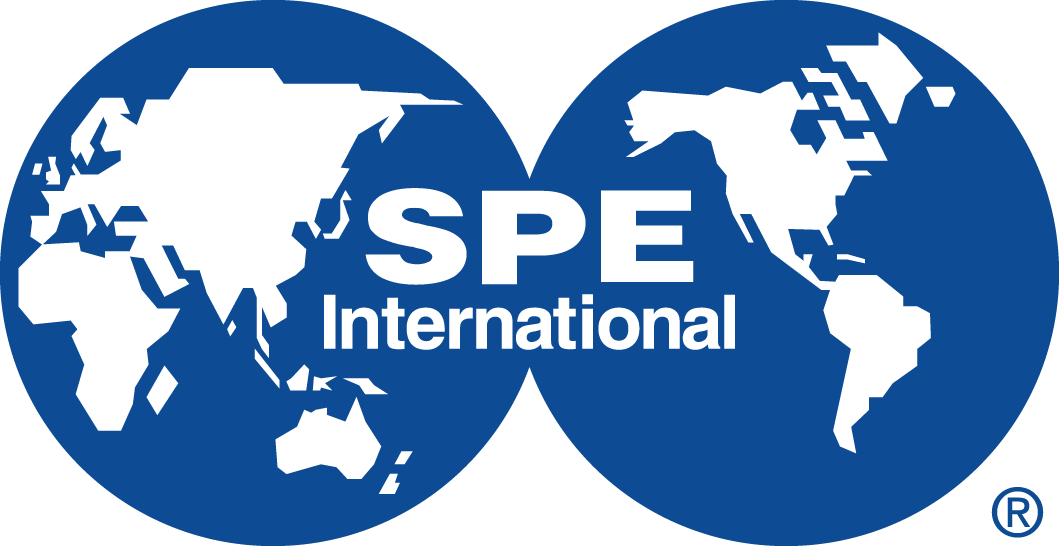-
50 mins
-
10 mins
-
60 mins
- Opening and Keynote
-
30 mins
-
90 mins
- Technical
Session Managers: DENG Rongjing, Adam, ConocoPhillips China Inc.; JIN Xu, RIPED, CNPC
This session will highlight advancements in geological theories and evaluation methods supporting coal rock gas exploration. It will address key challenges, such as the absence of a unified petroleum system across varied coal ranks and sedimentary facies, and the lack of standardised criteria for target selection and sweet spot evaluation in complex tectonic settings. Aimed at bridging fundamental geology with advanced exploration technologies, the session will promote the development of a systematic theoretical framework and technical standards for next-generation coal rock gas exploration.
Discussion topics will include:
- Reconstruction of coal rock gas accumulation mechanisms, incorporating multi-source hydrocarbon generation, multi-stage migration, and multi-scale reservoir structuring.
- Development of an integrated petroleum system model reflecting source–reservoir integration, dual-medium reservoirs, and multi-phase accumulation beyond conventional coalbed methane paradigms.
- Hydrocarbon generation and storage across coal ranks and maceral types.
- Evolution and preservation of multi-medium reservoirs under thermal and mechanical influences.
- Coupled geodynamic models of source–reservoir–seal systems in coal-bearing strata.
- Innovative geological and geophysical techniques for sweet spot identification and quantification.
- High-resolution logging interpretation and seismic inversion for reservoir mapping.
- Quantitative reservoir characterisation and predictive geostatistical modelling.
- Case studies from frontier coal-bearing basins showcasing breakthroughs in theory and evaluation technology.
- Coal rock gas enrichment mechanism, major controlling factors, dual sweet spot identification criteria, resource and exploration potential.
- Coal rock gas related new lab test techniques.
-
120 mins
-
90 mins
- Technical
Session Managers: YU Huijuan, Jenny, Baker Hughes; WEI Yunsheng, RIPED, CNPC; LUO Yin, SLB
Coal Rock Gas (CRG) is an emerging unconventional resource with geological traits similar to shale gas—deep burial, high free gas content, and micro-scale migration—yet occurs within complex coal-bearing sequences. Shale development technologies and geological-engineering integration have advanced CRG progress, but large-scale, cost-effective, and sustainable development remains challenging.
Key technical issues include unclear production mechanisms, rapid post-fracturing declines, interlayer interference, and the absence of scalable development models. Recovery rates remain below 35%, particularly in structurally complex basins where economic viability is difficult without innovation.
This session will explore fluid flow and migration mechanisms in coal-bearing systems, alongside full-lifecycle optimisation strategies for green and efficient gas recovery. It aims to integrate geological insights with engineering innovations to drive lifecycle-optimised, environmentally responsible, and technically robust CRG development.
Discussion topics will include:
- Cross-scale and multi-field coupled flow and production mechanisms, including desorption–diffusion–seepage processes, fluid redistribution in multi-layer systems, dynamic pressure depletion modelling, and phase behaviour.
- Full-lifecycle development and production optimisation, covering well placement, well pattern design, spacing, type, dynamic drainage control, and enhanced gas recovery strategies tailored to diverse geological and economic conditions.
- Mechanisms of fluid flow and migration in coal-bearing systems, including multi-component coupling effects and production performance prediction.
- Multi-layer, stereoscopic development strategies for thin, stacked, and highly heterogeneous coal seams.
- Hydraulic fracturing in low-permeability coal systems, in-situ fracturing mechanisms, and development of low-water or waterless stimulation technologies.
- Estimated Ultimate Recovery (EUR) and reserve evaluation, and predictive modelling techniques.
- Drilling, completion, and production technologies: key challenges, best practices, and innovations to improve recovery efficiency.
- Production technology, including artificial lift, dewatering, formation damage mitigation, and flow assurance.
- Water management strategies, including water usage, treatment, and processing.
- Integrated geological-engineering approaches for optimised CRG development.
- Case studies demonstrating frontier developments, field applications, technological breakthroughs, and lessons learnt.
-
30 mins
- Expert Presentation
-
30 mins
-
90 mins
- Technical
Session Managers: WANG Guangfu, Petroleum Exploration and Production Research Institute of Sinopec; LIU Kouqi, Peking University
Continental shale oil is characterised by high temperature and high pressure, significant variations in geo-stress, and strong rock plasticity. The development of continental shale oil presents several challenges, including difficulty in extending and supporting fracturing cracks, localised high stress causing casing deformation in certain intervals, high decline rates in oil production, and limited estimated ultimate recovery (EUR) of single well.
This session will focus on fundamental studies, modelling, and sweet spot evaluation including the following discussion topics:
- HPHT nano/micro pore-fracture system occurrence states and phase behaviour.
- Accumulation patterns, enrichment mechanisms, geological fluid evolution dynamics, multi-scale precise geological modelling, and geological-engineering sweet spot evaluation/prediction for continental shale oil.
- Formation mechanisms and evaluation methods of primary controlling factors for sweet spots in continental shale oil.
-
120 mins
-
30 mins
- Expert Presentation
-
30 mins
- Expert Presentation
-
30 mins
-
90 mins
- Technical
Session Managers: ZHANG Fengyuan, China University of Petroleum, Beijing; LIU Yuxuan, Southwest Petroleum University
Continental shale oil presents complex development challenges due to its depth, low permeability, and high clay content. This session will explore these challenges and the emerging technologies designed to address them. It will examine the mechanical characteristics of such reservoirs and the mechanisms involved in forming complex fracture networks under challenging conditions. Topics will also include multi-scale and multi-field coupling mechanisms, advanced numerical modelling, analytical inverse analysis techniques, and stereoscopic well pattern optimisation.
Additionally, the session will cover integrated approaches that combine CO2-based fracturing, enhanced oil recovery, and long-term storage strategies. Emphasis will be placed on improving single-well estimated ultimate recovery (EUR) and field-scale recovery factors through full lifecycle optimisation. Furthermore, case studies demonstrating breakthroughs in development theory, stimulation design, and recovery enhancement will be featured.
Discussion topics will include:
- Fracture propagation and characterisation in high-clay, low-brittleness formations.
- Coupled modeling techniques for stress, fluid flow, and thermal fields.
- CO2 fracturing, enhanced oil recovery (EOR), and storage integration.
- Well pattern and production strategy optimisation and analysis.
- Innovative practices for enhancing recovery efficiency in shale plays.
-
120 mins
-
90 mins
- Technical
Session Managers: ZHOU Jiheng, Baker Hughes; YANG Yongfei, China University of Petroleum (East China)
The digital transformation of unconventional oil and gas development is accelerating through the integration of intelligent technologies across the full lifecycle. This session will explore cutting-edge advancements that enhance geological-engineering synergy and operational efficiency.
Discussion topics will include:
- Geology-engineering integration platform technologies that enable seamless collaboration.
- Applications of large language models (LLMs) and large physical models for predictive analysis and workflow optimisation.
- Intelligent measurement and monitoring technologies for real-time decision-making.
- Advanced fibre-optic seismic and monitoring systems for high-resolution subsurface characterisation.
- Cloud-edge collaborative intelligent control systems and hierarchical decision-making frameworks.
- Full-chain, full-lifecycle intelligent perception technologies delivering deeper operational insights.
- The impact of reasoning LLMs in transforming geology-engineering integration, including process reengineering and paradigm restructuring.
-
30 mins
-
90 mins
- Technical
Session Managers: CAO Jun, ConocoPhillips China Inc.; Ramon HU, Halliburton
In a sustained low-price environment, cost-effectiveness is crucial in driving the development of unconventional oil and gas resources. Beyond geological and technical considerations, there are numerous opportunities within asset management to optimise both cost and production performance. These include re-establishing investment thresholds, configuring organisational structures, refining contracting and procurement processes, implementing quality control measures, and balancing the trade-offs between technical pilots and operational cost savings.
This session will showcase effective project and asset management practices that have demonstrated success across various organisations.
Discussion topics will include:
- Evaluation methodologies for unconventional oil and gas asset projects.
- System engineering management methodologies and techniques.
- Unconventional asset management paradigms of national oil companies (NOCs) and international oil companies (IOCs).
- The differences between domestic and international unconventional asset projects, and the pathway towards accelerating management transformation in the Asia Pacific unconventional sector.
-
30 mins

